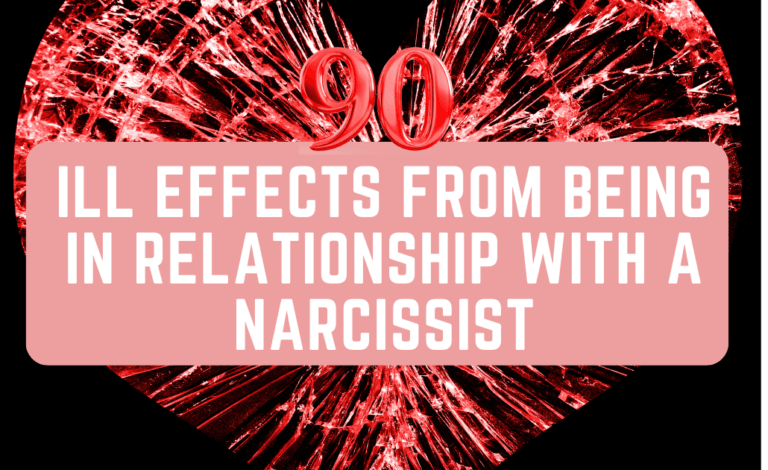Exploring EMDR Therapy: Is It Right for Survivors of Narcissistic Abuse? 3 Essentials to Know Today!
EMDR Therapy - Context of Narcissistic Abuse
When healing from narcissistic abuse, survivors often search for effective therapies to process deep emotional wounds. Eye Movement Desensitization and Reprocessing (EMDR) is one of the therapies gaining popularity for its ability to address trauma. Originally designed for those suffering from post-traumatic stress disorder (PTSD), EMDR has also been explored for its effectiveness in treating emotional and psychological wounds caused by abusive relationships.
As a narcissistic abuse recovery coach, I want to present an honest, trauma-informed look at EMDR, so you can make informed decisions about your healing journey.
What is EMDR Therapy?
EMDR is a structured therapy that encourages patients to recall distressing memories while making specific eye movements. These movements, along with guidance from the therapist, aim to reduce the emotional charge of traumatic memories, helping the brain reprocess them in a way that reduces their lingering negative impact.
The process typically involves:
- History Taking: Understanding your trauma and creating a treatment plan.
- Preparation: Building coping skills to handle distress that may arise during sessions.
- Assessment: Identifying specific traumatic memories to target.
- Desensitization and Reprocessing: Recalling the memory while following the therapist’s finger with your eyes or engaging in bilateral stimulation (e.g., tapping, sounds).
- Installation: Solidifying positive beliefs as replacements for negative thoughts related to the trauma.
- Closure: Wrapping up each session and ensuring stability before leaving.
- Reevaluation: Reviewing progress in subsequent sessions.
The Pros of EMDR for Narcissistic Abuse Survivors
1. Non-Invasive and Structured
EMDR offers a relatively gentle way to process trauma. Unlike some other forms of therapy, which can involve deeply digging into painful memories in a free-form way, EMDR is highly structured. This can be particularly beneficial for survivors of narcissistic abuse, who may feel emotionally overwhelmed by more open-ended therapies.
2. Works Without Detailed Disclosure
EMDR is unique in that you do not need to verbalize all the specifics of your trauma. For those who find it too difficult to relive painful moments, EMDR can be a safe option since the focus is on reprocessing, rather than retelling, the memory. This can be a relief for survivors of narcissistic abuse, especially when the emotional scars run deep.
3. Effective for PTSD and Complex Trauma
Narcissistic abuse often leaves its victims with symptoms akin to complex PTSD—chronic anxiety, emotional numbness, flashbacks, and hypervigilance. EMDR has been proven effective in reducing these symptoms in trauma survivors by reprogramming how the brain processes distressing events.
4. Relatively Fast Results
Compared to traditional talk therapy, EMDR can yield faster results in many cases. Some survivors report feeling significant relief after just a few sessions, which can be encouraging when dealing with the often long-lasting effects of narcissistic abuse.
The Cons of EMDR for Narcissistic Abuse Survivors
1. Triggers Can Be Overwhelming
For many survivors of narcissistic abuse, the emotions tied to their trauma are complex and deeply buried. During EMDR, the act of recalling traumatic events can sometimes feel overwhelming or re-traumatizing if you’re not adequately prepared. While therapists work to prevent this, it’s important to note that EMDR can bring up intense emotions that can be difficult to manage between sessions.
2. Requires a Certain Level of Emotional Readiness
EMDR may not be suitable for everyone, particularly those who are in the early stages of recovery. If a survivor is still in an unstable environment or is struggling to develop basic coping mechanisms, EMDR might not be the best fit at that time. It’s vital to have a solid emotional foundation and support system before diving into this type of trauma work.
3. Not Always Effective for Narcissistic Abuse Trauma
While EMDR has shown great promise for PTSD, its effectiveness for the unique challenges of narcissistic abuse can vary. Narcissistic abuse often involves emotional manipulation, gaslighting, and long-term psychological harm, which can create a layered trauma that’s not always addressed by EMDR alone. Some survivors may find that a combination of therapies, including talk therapy or cognitive behavioral therapy (CBT), is more effective in the long run.
4. Can Stir Up Repressed Memories
In some cases, EMDR may uncover memories that had been repressed or forgotten. While this can be a positive aspect of trauma recovery, it can also feel destabilizing if these memories surface too quickly or without proper support. Survivors of narcissistic abuse may experience flashbacks or emotional turmoil between sessions, which is why it’s essential to work with a trauma-informed therapist.
5. Access and Cost
EMDR requires working with a trained professional, and not all therapists are certified in this technique. This can make it more expensive or difficult to access, especially for those who do not have insurance coverage or live in areas where EMDR specialists are not readily available.
Who Might Benefit Most From EMDR?
EMDR is often most effective for those who feel stuck in their healing process or who experience frequent flashbacks, nightmares, or emotional triggers. If you feel haunted by specific memories of the abuse, or if you often react strongly to certain people or situations that remind you of your abuser, EMDR could be helpful.
That being said, it’s crucial to consider where you are in your recovery. Survivors of narcissistic abuse who are just beginning to establish boundaries or who still feel emotionally raw might benefit from building a more stable foundation before diving into EMDR.
How to Approach EMDR as a Narcissistic Abuse Survivor
If you’re considering EMDR, the most important step is to find a trauma-informed therapist who understands the nuances of narcissistic abuse. This kind of specialized knowledge will ensure that they can guide you gently through the process, while addressing the unique effects that emotional manipulation and gaslighting may have had on your psyche.
Other Healing Modalities to Consider Alongside EMDR
To create a more comprehensive healing plan, many survivors of narcissistic abuse benefit from combining EMDR with other forms of therapy, such as:
- Cognitive Behavioral Therapy (CBT): Helps reframe negative thought patterns, which are often instilled by narcissistic abuse.
- Somatic Therapy: Addresses how trauma is stored in the body and can work alongside EMDR to release physical tension.
- Trauma-Informed Coaching: A coach with a background in narcissistic abuse can help you navigate the emotional landscape and offer practical steps toward recovery.
Self-Care Strategies to Support EMDR Therapy
If you decide to pursue EMDR, integrating self-care practices can help manage any overwhelming feelings that arise. Here are some ways to support your healing:
- Grounding Exercises: These can help you stay present if you feel triggered during or after EMDR sessions.
- Journaling: Writing about your experience can provide emotional release and help you process what comes up during therapy.
- Mindfulness and Meditation: Calming the nervous system is key in trauma recovery. Incorporating these practices can reduce feelings of anxiety or overwhelm between sessions.
- Support Groups: Connecting with others who have gone through similar experiences can help normalize your feelings and offer community support.
EMDR is a powerful tool for many survivors of narcissistic abuse, but it’s not a one-size-fits-all solution. The decision to pursue EMDR should be based on your emotional readiness, the complexity of your trauma, and your overall recovery plan. With the right support system in place, and a trauma-informed therapist to guide you, EMDR can be an effective step toward healing from the invisible wounds of narcissistic abuse.
Remember: Your healing is a journey, not a race. Take your time, trust yourself, and explore the options that feel right for you.
EMDR Therapy EMDR Therapy EMDR Therapy EMDR Therapy EMDR Therapy EMDR Therapy EMDR Therapy EMDR Therapy EMDR Therapy EMDR Therapy EMDR Therapy EMDR Therapy






